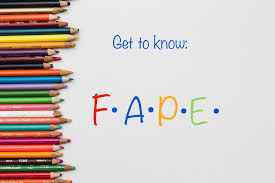 One of my favorite comedic bits is the one from Jerry Seinfeld’s standup where he talks about the difference between flying first and passenger class. As the stewardess brusquely pulls the curtain between the first class and the rest, she has a look of, “If you only worked harder,” looking at the hapless passenger class.
One of my favorite comedic bits is the one from Jerry Seinfeld’s standup where he talks about the difference between flying first and passenger class. As the stewardess brusquely pulls the curtain between the first class and the rest, she has a look of, “If you only worked harder,” looking at the hapless passenger class.
With that said, let’s look at Olivia, a lively and engaging 8-year-old third grader. Involved with a range of typical 8-year-old pursuits, she’s well-liked by her teachers, coaches and peers.
There’s only one problem.
Olivia can’t read, spell or write very well.
Oh, wait, there’s another problem. As determined in a recent special education evaluation, Olivia won’t be qualifying for her to get help in the form of an IEP.
You see, her score on an IQ test called the WISC-V came in at 91 (27th %ile) and her Composite Reading score was an 83 (13th %ile).
When the mom was told there wasn’t supporting evidence to generate an IEP, the mom was flabbergasted.
“Wait,” the mom said. “My child reads at a level where about 90% of the children her age read better than she does and she does not qualify for services? How is that possible? I think you’re telling me that Olivia is just not smart enough. That is, if her IQ came in at 110 or 115, we’d be signing an IEP right now.”
There was no response to the mom’s statement.
Pull the curtain.
 Copyright, Richard Selznick, Ph.D. 2022, www.shutdownlearner.com.
Copyright, Richard Selznick, Ph.D. 2022, www.shutdownlearner.com.
To Contact Dr. Richard Selznick for advice, consultation or other information, email rselznick615@gmail.com.
To receive future blog posts, register your email: https://shutdownlearner.com.

 One of the “go to“ recommendations I often make following an assessment is for the child to see a tutor if it is at all possible.
One of the “go to“ recommendations I often make following an assessment is for the child to see a tutor if it is at all possible. Let’s say you have a 7 year old child just finishing second grade who struggles greatly with reading, spelling and writing and has been diagnosed with a learning disability (i.e., dyslexia).
Let’s say you have a 7 year old child just finishing second grade who struggles greatly with reading, spelling and writing and has been diagnosed with a learning disability (i.e., dyslexia). “Oh, my, my, my, I’m the lone crap shooter, playin the field every night.” ‘Tumblin Dice,’ the Rolling Stones)
“Oh, my, my, my, I’m the lone crap shooter, playin the field every night.” ‘Tumblin Dice,’ the Rolling Stones)